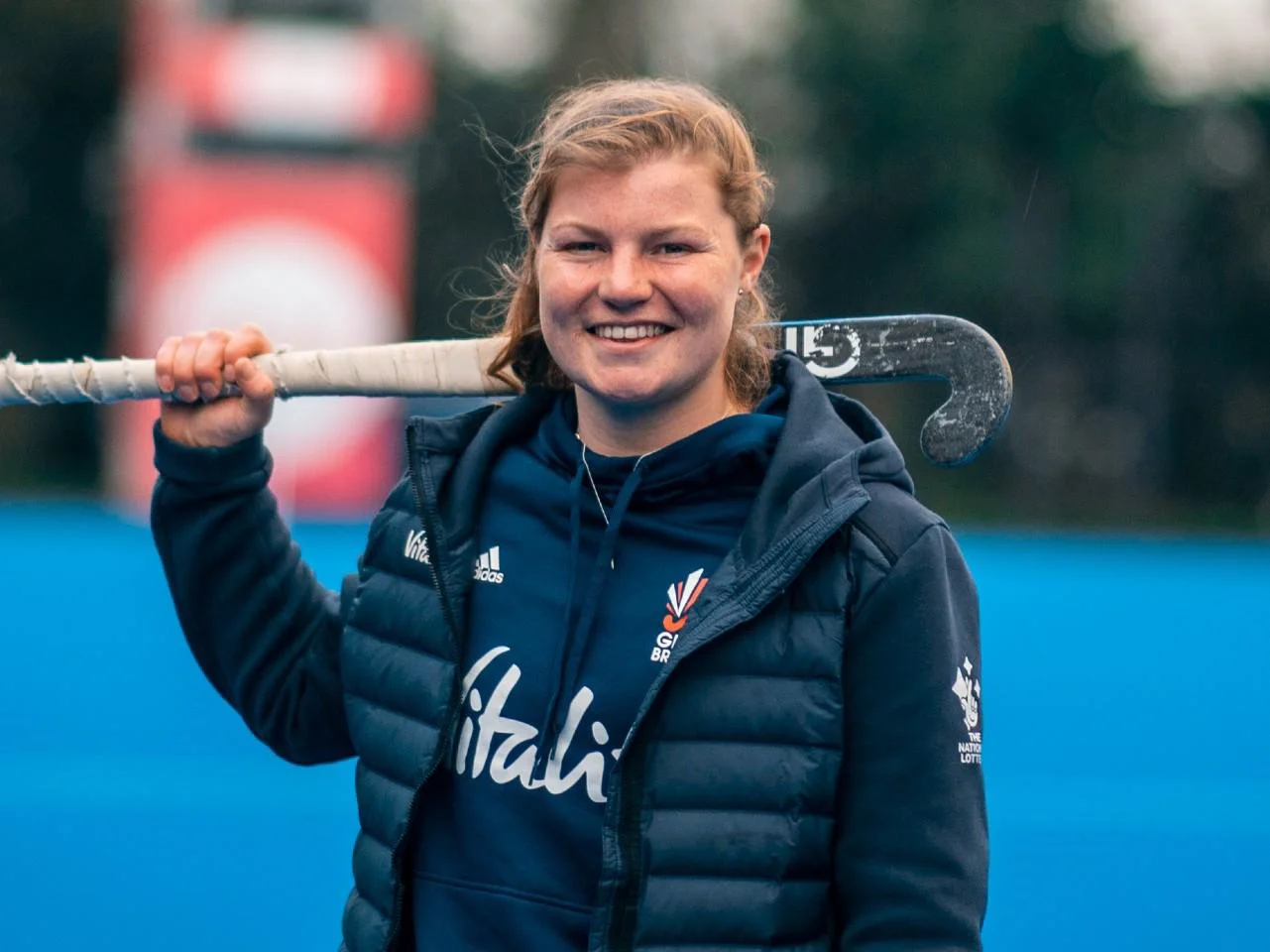"I want to help girls stay in sport and break down the barriers to participation"

LSE master’s student and England hockey player Tess Howard recently published research revealing the alarming rate of girls quitting sport due to clothing concerns.
Here, she discusses her work to change the face of sport and her life as a student and international sports player.
Earlier this year, sociology master’s student and professional hockey player Tess Howard, 24, published research showing how gendered school sports uniform plays a major role in the high drop out rates of teenage girls in sport.
The study, conducted initially as part of Tess’ dissertation during her undergraduate at Durham university, found 70 percent of women had seen girls drop sport at school due to clothing and related body image concerns, with many feeling sexualised by their sports uniforms.
"The number of girls this is putting off sport, is truly alarming. It's the most underrated cause of low female sport numbers," she says.
Early promotion of her paper, now published in the peer-reviewed journal Sport, Education and Society, led to England Hockey launching new inclusive kit regulations for domestic hockey games. These protect the right for players to wear the hijab, turban, any coloured long-sleeves, and individual choice between wearing shorts and skorts.
Following this move from England Hockey and articles in The Guardian, BBC and The Telegraph, the Federation of International Hockey (FIH) recently also made the landmark decision to change the international uniform guidelines. These allow any hockey team to wear a mix of shorts and skorts, as long as they are the same colour and design.
On this milestone change, Tess says: "This is history. Choice supports comfort, performance, enjoyment and it’s an opportunity to evolve our sport away from the need to perform ‘hyper-femininity’ through uniform."
Participation more important than appearance
Now Tess, a forward for East Grinstead hockey club, aims to tackle the issue of hyper-gendered, hyper-sexualised uniform across all sport.
"Participation in sport is so much more important than appearance," says Tess as she explains how her own experiences and those of her teammates influenced her decision to campaign in this area.
"When I started playing hockey, I had to wear a skort and, while that didn’t affect my participation as I love the game so much, I did wonder why my female identity was attached to this item. The discomfort of wearing a skort has always been there in my life and many of my teammates’ lives but we’ve previously just accepted it."
The turning point came for Tess when her team ordered a new kit with compression tank tops and skorts. "I felt so unconfident wearing it" she says. "It was awful playing an international match when you’re supposed to be feeling at the top of your game, but the uniform is literally sucking the life out of you."
True to her inner academic, Tess and a friend submitted a survey to their teammates asking if their performance confidence would be improved if the uniform was changed and 95 per cent replied saying it would.
"That was a huge step because we could show uniform at the elite level is a performance margin," she says. Since then, Tess has been on a mission to make the hockey uniform more comfortable and inclusive.
"It’s all about choice; choice is being rigorously inclusive," states Tess, who also stars for Great Britain but missed out on the Tokyo 2020 Olympics due to an anterior cruciate ligament injury.
"My dream is to go to the Olympics, but my dream is also an Olympics with the option to wear shorts or skorts. That is a powerful statement of inclusion, belonging and evolution in women’s sport. Now the Federation of International Hockey (FIH) rule has changed, I believe we could do it."
Inclusive sportswear
Her campaigning has given Tess the confidence to go even further and launch Inclusive Sportswear CIC, a community-interest company specialising in the development of inclusive sportswear policies and guidance for schools, clubs, sport organisations and brands. Tess is also currently working with LSE Generate, the School’s home for entrepreneurship, to help get further support for this initiative.
To any young girls who want to get involved in sport but are feeling unconfident Tess, who started playing hockey at age 11, advises, "the purpose of sport is for you to feel free, to help you get active, to help you make friends and have time away from the stresses of life. Your experience of sport is for you only and you have the right to feel comfortable and wear what you like."
This is something Tess has witnessed firsthand. While coaching the under-12s Marlow hockey team last year, she told them they could turn up to practice in whatever they felt comfortable in – even if that was their pyjamas! "They slowly all started coming in what they wanted to wear and you could see their confidence change," she smiles.
To the Olympics and beyond
Looking forwards, Tess – who scored the decisive goal to secure England’s first ever Commonwealth Games hockey gold medal last year - will be playing in the European hockey tournament this summer in Germany. Following team qualification, she aims to be selected for the Paris Olympics.
On the academic side, Tess has been juggling her master’s degree at LSE, which she is doing over two years, and her hockey training which she does fulltime four days a week at Bisham Abbey National Sports Centre in Marlow. Combining the two isn’t always very easy but as Tess notes, "that’s never stopped me from wanting to try and have the best of both worlds. I’m always going to have a sport and academic dual personality!"